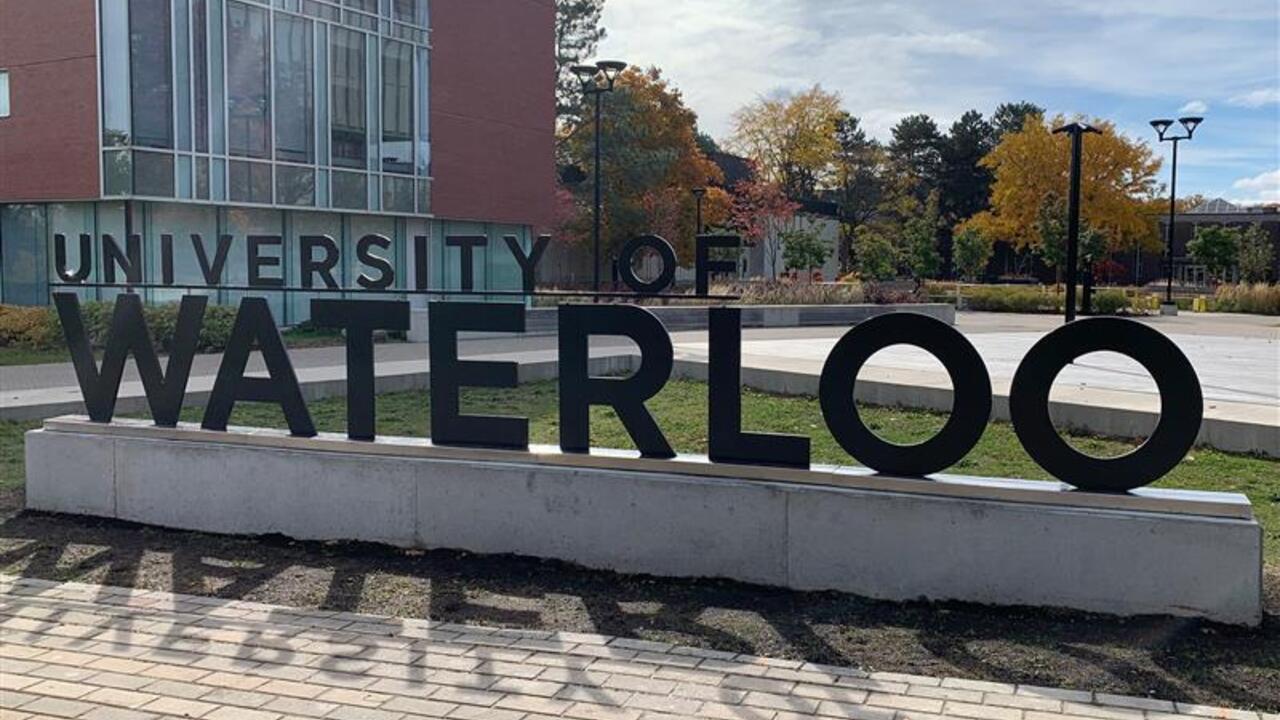WATERLOO, Ont. (Thursday, Mar. 22, 2012) - The world’s unprecedented and growing urbanization, climate change and increased demand for food puts additional pressure on the world’s water reserves. These are the key messages in the United Nations (UN) World Water Development Report, which had its Canadian launch at an event co-hosted by the University of Waterloo and Wilfrid Laurier University today.
The document is the flagship publication of UN-Water, which includes all UN bodies with water-related responsibilities. Among them is the UN University's Canadian-based Institute for Water, Environment and Health (UNU-INWEH), whose director, Zafar Adeel, chaired UN-Water during the report's development. The report gives an overall picture of the state of the world's freshwater resources, and aims to provide decision-makers with the tools to implement sustainable use of our water. Representatives of UNU-INWEH and the Canadian Commission to UNESCO released the document, entitled Managing Water under Uncertainty and Risk during World Water Day activities held at the University of Waterloo campus.
“We are particularly honoured to host the official Canadian release of this important document,” said Professor Robert Gillham, executive director of the Water Institute at Waterloo. “This report provides a comprehensive assessment of the world’s water resources and reminds us that effective water management requires a mix of technical, social, economic and political inputs, which are all areas where Waterloo and Laurier student researchers are making a positive contribution locally, nationally and internationally.”
The University of Waterloo and Wilfrid Laurier University have well-developed reputations for water-related education and research, in particular through Waterloo’s Water Institute and Laurier’s Water Science and Cold Regions Research Centre. Scholars stress the importance of Canadian institutions taking a global leadership role on water issues.
“Canadians are surrounded by some of the biggest freshwater lakes in the world, and that can foster the illusion that water issues aren’t so pressing,” said Professor Richard Petrone, director of the Cold Regions Research Centre at Laurier. “But these are critical issues for humanity that we all need to think about, and reminding everyone about them through World Water Day is a very good thing.”
World Water Day highlights university water research and raises awareness about local and global water issues. A graduate fair featuring graduate research and scholarship awards was also part of the event.
A full copy of the report can be found at www.unesco.org/new/en/natural-sciences/environment/water/wwap/wwdr/wwdr4-2012/.
Media resources can be found at www.unesco.org/new/en/natural-sciences/environment/water/wwap/for-the-media/.
About the University of Waterloo
In just half a century, the University of Waterloo, located at the heart of Canada's technology hub, has become one of Canada's leading comprehensive universities with 34,000 full- and part-time students in undergraduate and graduate programs. Waterloo, as home to the world's largest post-secondary co-operative education program, embraces its connections to the world and encourages enterprising partnerships in learning, research and discovery. In the next decade, the university is committed to building a better future for Canada and the world by championing innovation and collaboration to create solutions relevant to the needs of today and tomorrow. For more information about Waterloo, visit www.uwaterloo.ca.
About Wilfrid Laurier University
Wilfrid Laurier University is a leading Canadian university known for academic excellence and a culture that inspires lives of leadership and purpose. Laurier has a distinct commitment to teaching, research and scholarship, combined with a strong student focus, high levels of student satisfaction and a deep sense of community. Laurier’s innovative educational model purposefully integrates the academic learning experience with an experiential learning component. The university has more than 17,000 students throughout its campuses in Waterloo and Brantford and locations in Kitchener and Toronto. The university celebrated its centennial in 2011.
About UNU-INWEH
With core funding from the Government of Canada through CIDA, the United Nations University's Institute on Water, Environment and Health was established in Hamilton in 1996 to strengthen water management capacity, particularly of developing countries, and to provide on-the-ground project support. www.inweh.unu.edu.
Media Contacts:
Pamela Smyth
Media Relations Officer
Communications & Public Affairs
University of Waterloo
519.888.4777
psmyth@uwaterloo.ca
www.newsrelease.uwaterloo.ca
Richard Petrone
Director, Cold Regions Research Centre
Wilfrid Laurier University
519.884.0710, ext.3744
rpetrone@wlu.ca
Waterloo news release no. 24








